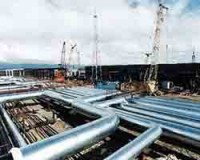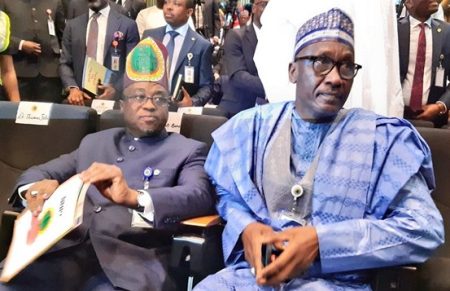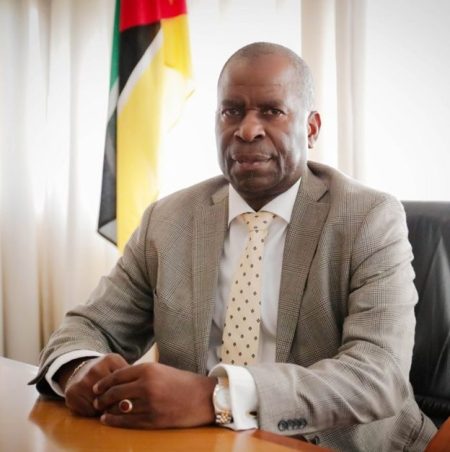 06 August 2013, Lagos – Nigeria and other stakeholders in the multi-billion dollar Trans-Saharan gas pipeline project have decided to re-evaluate the commercial viability of the project, Group Executive Director, Gas and Power, Nigerian National Petroleum Corporation, NNPC, Dr. David Ige, has said.
06 August 2013, Lagos – Nigeria and other stakeholders in the multi-billion dollar Trans-Saharan gas pipeline project have decided to re-evaluate the commercial viability of the project, Group Executive Director, Gas and Power, Nigerian National Petroleum Corporation, NNPC, Dr. David Ige, has said.
He said this became necessary considering market changes that have taken place since its conception over a decade ago.
The Trans-Saharan project, estimated at over $12 billion, was conceived in 2002 by the Presidents of Nigeria, Niger and Algeria with the support of former president of South Africa, Thabo Mbeki.
The project was endorsed in furtherance of the New Partnership for Africa’s Development (NEPAD). The objective of the project was to take natural gas through pipe from Africa through the Mediterranean to Europe.
Ige said new developments that had taken place in the oil and gas industry called for re-evaluation of the project to ascertain its commercial viability.
He said in the last 10 years, gas consumption had grown substantially in Nigeria and the emergence of shale gas in many countries, adding that these factors needed to be considered before implementing the project because at the conception, these factors were not in existence.
He said the review became important because Nigeria is the principal shareholder in the project considering the fact that most of the gas supplies will come from the country. He said the NNPC would advertise for expression of interest (EoI) for the Calabar-Kano pipeline, from which the gas would be taken to the Nigerian border.
Ige said: “Trans-Saharan gas project starts from Calabar to Kano and to Algeria and crossed to the Mediterranean. “About 30 per cent of the entire segment of the project is in Nigeria, which is the Calabar to Kano. What we have done is to focus right now on that first leg, which is getting the Nigerian side right.
“Two things. Firstly, is that there is no Trans-Saharan without Trans-Nigeria. Secondly, for Trans- Saharan to be viable, we have to make sure we open access to different gas supply sources within Nigeria.
According to him, it was realised that when the project started, the level of domestic gas demand and usage in the country was not anticipated. He said a lot had changed since the domestic market is growing at an alarming rate. He added that it was also realised that for the country to have flexibility, there has to be different sources of gas supply from where it will get to the Nigerian border to Europe.
He said: “That is what the Ajaokuta-Calabar pipeline will do. At the moment, we are focused on that and we will deliver that. Soon, you will start to see expression of interest adverts for what we are trying to do in Calabar. The Eurobond Mr. President announced, part of it is dedicated to that project.
“At the meantime, we are re-evaluating the other end of the market in Europe to make sure that the market is as it was because a lot has changed in the market since 10 years ago. We have commissioned the studies and we are looking at the European gas market before we move to the next phase. What we have done is to position the Nigerian segment, which will serve Nigeria but it is tactically positioned to be ready to extend out of Nigeria.”
He said if the market survey issue is positive, implementation of the project could go on, adding that if it turns out the other way round, implementation will be put on hold.
“But basically, the Trans-Saharan stakeholders have come together to commission that study because in Europe, a lot has changed and it is so difficult to know whether the market is viable because there is growth and competition. Russia supplies gas and nobody knows what will happen with shale gas supply in Europe. Besides, the economic growth in Europe has flattened,” he said.
– Emeka Ugwuanyi, The Nation



